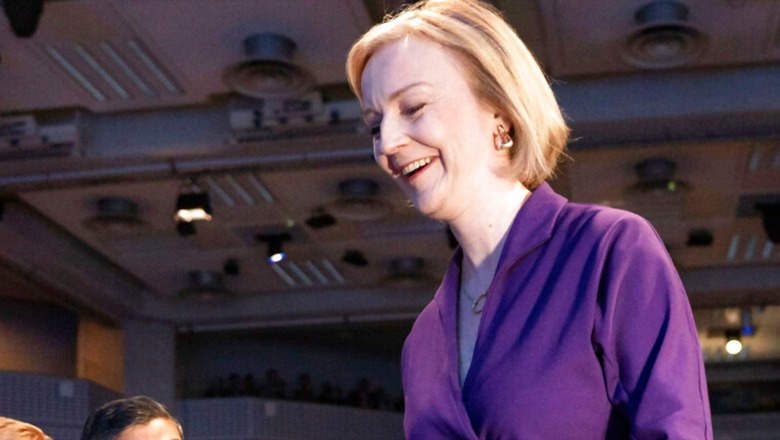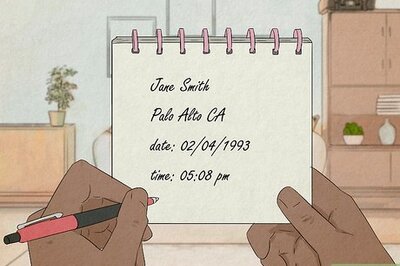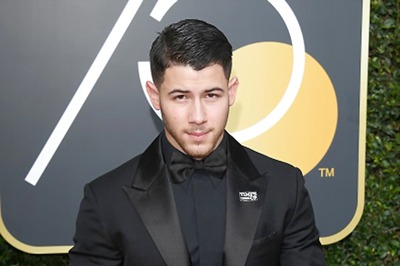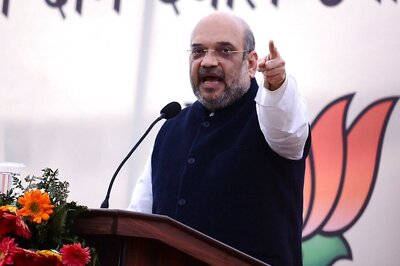
views
The United Kingdom has finally elected its new Prime Minister. And despite all the build-up surrounding Indian-origin leader Rishi Sunak, it is Liz Truss who has got elected as the new British Prime Minister.
Truss hasn’t really got elected in an ideal situation. Her country is battling with a number of issues ranging from the pandemic-induced slowdown to the Ukraine war, and the ongoing energy crisis. It remains to be seen if she can actually manage this situation and take the ruling Conservative Party forward. Meanwhile, India prepares itself to understand what Truss’ election means for its bilateral ties with the UK. Even a cursory analysis would reveal a lot of symbolism and a cloud of uncertainty over the future of bilateral ties.
Symbolism
Liz Truss seems to understand the rising importance of the Indo-Pacific as well as New Delhi’s centrality in this context. So, she seems to be trying to woo India straightaway.
To be fair, Truss has made a solid commitment on at least one issue — the Free Trade Agreement (FTA) with India. The UK PM-elect had earlier promised to wrap up the deal by Diwali this year. She was quoted as saying, “I want to get this trade deal done, preferably by Diwali, but definitely by the end of the year, and I want to make sure that the trade deal is as deep as possible covering everything from life sciences to technology to agriculture.”
And then, there have been some symbolic gestures on Truss’ part. About providing visas to Indians, she said, “There is no doubt in my mind that many of the best and brightest in the world are in India. I will continue to look at our visa system to make sure it attracts those people.”
In the past too, she has referred to India as a “great friend, economic powerhouse and the world’s largest democracy”. Being the Secretary of State for Foreign, Commonwealth and Development Affairs, she has often engaged with the Indian side on a range of issues concerning bilateral cooperation.
While Truss’ election seems to be a welcome development on the surface due to all the symbolic statements, diplomatic courtesies and big promises, there are certain contentious issues that remain buried beneath the surface.
The shadow of Russia-Ukraine war
At the end of the day, Truss is a typical Western leader. Though she may understand the importance of the Indo-Pacific, her wisdom too is vulnerable to getting overshadowed by the Russia-Ukraine war.
In March 2022, she had actually tried to bring up the issue of Indo-Russian relationship. Truss had said, “India is currently 60 percent dependent on Russian weapons but obviously they are now concerned about Russia’s strategic relationship with China and also the efficacy of some of those weapons, so there is a real opportunity for closer partnership.”
She seemed even more condescending on the issue of India’s decision to purchase discounted oil from Russia. Truss had then said, “I’m not going to tell India what to do. What I have said is as a member of the UK government that has signed up to the Budapest Memorandum, I feel a strong responsibility on behalf of the United Kingdom to take all the action we can, to support the people of Ukraine but that is not the same as going around telling other countries what to do.”
India’s Minister of External Affairs, Dr S Jaishankar, however, had a terse rebuttal for Truss. Pointing out the hypocrisy of European leaders, the Minister had replied, “When oil prices go up, I think it’s natural for countries to go out into the market and look for what are good deals for them. But I am pretty sure if we wait two or three months and actually look at who are the big buyers of Russian gas and oil, I suspect the list won’t be very different from what it used to be. And I suspect we won’t be at the top 10 of that list.”
Once Truss assumes office, it will have to be seen if she can curb her instinct of making condescending remarks on this issue. Unnecessary interference with the Indo-Russian relationship could end up creating avoidable friction between the two sides. So, all the symbolism on display might suddenly evaporate and lead to an undesirable disagreement.
An era of uncertainty
Be that as it may, Conservative leaders have at least shown a tendency to improve India-UK ties.
On the other hand, the Labour Party has been often found offending India with antagonistic remarks. The reference to Kashmir in Labour Party’s 2019 manifesto and a subtle attempt to portray India’s decision to abrogate Article 370 of the Constitution in a bad light show the kind of narrative the Labour would push if it comes to power.
Yet, Liz Truss’ victory shows that the Conservative Party may not be in a comfortable position. Remember, Truss secured a 57 percent-43 percent victory over Sunak. She beat Sunak by 81,326 votes to 60,399. The margin is rather slim and the contest turned out to be closer than expected. The signal is clear: Conservatives are divided and there is no single leader who could claim to be a unifying force within the party.
Liz Truss is the fourth leader to lead the Conservative government over the past six years. From India’s perspective, the ouster of Conservative Party and Labour Party’s resurgence could trigger a new set of anti-India policies in London. There is thus a cloud of uncertainty surrounding India-UK relations with Truss’ slim victory.
Akshay Narang is a columnist who writes on national and international affairs. The views expressed in this article are those of the author and do not represent the stand of this publication.
Read all the Latest Opinion News and Breaking News here




















Comments
0 comment